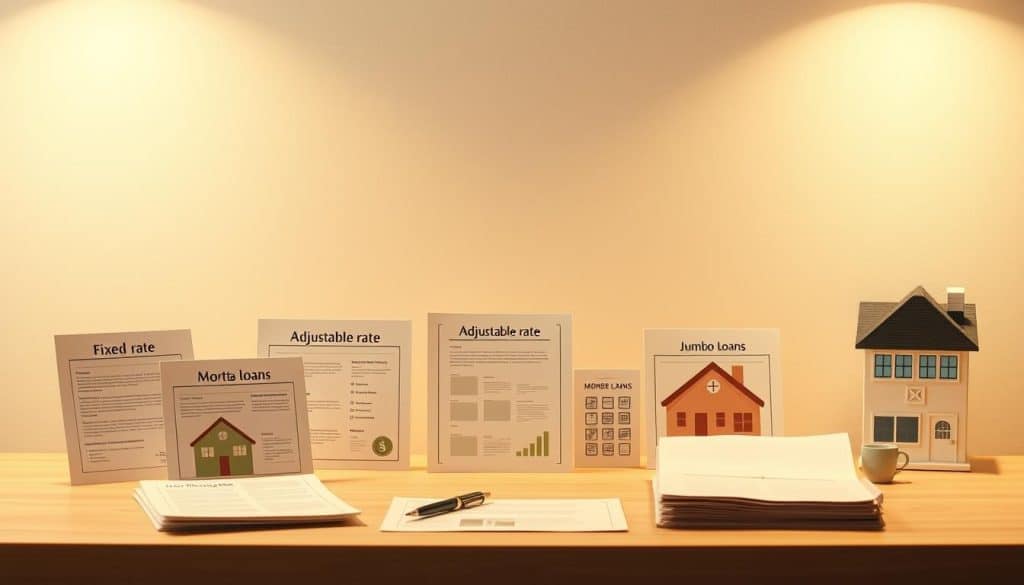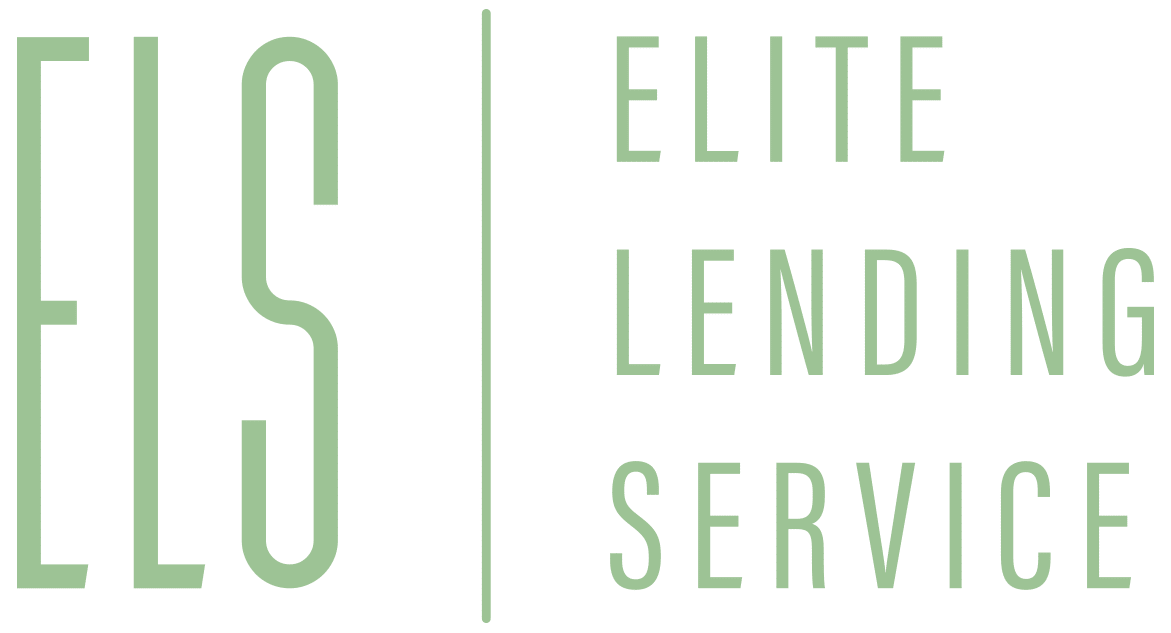Table of Contents
How can I qualify for a mortgage loan? Wondered how to make sure you qualify for a mortgage loan? Getting the best deal starts with understanding what lenders look at. Your credit score, how long you’ve been in your job, and the amount of debt you already carry are the big players. These details influence how much cash a bank will offer and what interest rate they’ll tack onto your loan.
Keep in mind that every lender has its own checklist, so comparing offers can save you money. The kind of mortgage loan you choose—VA, FHA, or a conventional loan—also weighs in on what you’ll need to prove. When you know this ahead of time, you can adjust your budget and improve your finances so you’ll be in the best possible shape when it’s time to shop.
If you want the whole scoop on mortgages and want to make choices you’ll feel good about, check out our complete mortgage guide. It’s set up to be your roadmap all the way to signing the papers on your new front porch.
Key Takeaways
- Knowing your credit score is key; scores in the 700s usually get the best mortgage deals.
- Each home loan type has its own down payment rules. VA loans can require no down payment, while conventional loans usually want 3% to 5% down.
- Lenders use the debt-to-income (DTI) ratio to gauge your overall financial picture.
- Before you start the mortgage process, gather documents like the last two tax returns and recent pay stubs.
- Looking into mortgage pre-approval can make the buying process faster and smoother.
- Teaming up with a skilled mortgage broker can guide you through the loan application and help you find the right fit.
Understanding Mortgage Qualification Criteria
When you apply for a mortgage loan, you must meet specific rules that lenders set. They look closely at your credit score, debt-to-income ratio, and job history. Knowing how each of these pieces fits together can help you prepare for your loan.
Credit Score Requirements
Your credit score plays a large role in whether you can get a mortgage loan and what the terms will be. A conventional loan usually needs a score of at least 620. FHA loans can take a lower score, just 580, if you can pay at least 3.5% down. A lower score may need a higher down payment of 10%.
Roughly 38% of first-time buyers score below 620. This keeps them from getting the more flexible conventional loans, so building better credit may be worth the effort.
Debt-to-Income Ratio
Your debt-to-income ratio (DTI) limits how much debt you can carry. Most lenders prefer a DTI of 36% or less. If your DTI is higher than 43%, lenders may see you as a risk. This can make your loans more expensive or even hard to get.
By tracking these limits, you can make informed decisions and tweak your budget before you even apply.
Employment History
Lenders are more comfortable lending to borrowers who have job stability. Most want to see at least two years in the same career. Staying in the same field signals a reliable paycheck, which lenders like to see.
Meeting the lender’s mortgage requirements can strengthen their confidence in you. When you show the right financial picture, the eligibility process becomes smoother.
Types of Mortgage Loans Available
Learning about different mortgage options teaches you the terms, costs, and qualifications you should keep in mind. Each type fits a different financial style, helping you budget earlier and making the pre-approval process easier.
Conventional Loans
Conventional loans are the most popular. Most lenders want a credit score of at least 620. These loans follow the Federal Housing Finance Agency (FHFA) guidelines. Because they are purchased by Fannie Mae and Freddie Mac, they are stable for many buyers.
A higher score can lower your interest rate. A debt-to-income (DTI) ratio—how much of your income goes toward debt—under 50% is better. You might only need to put down 3% to 5%. If your down payment is below 20%, you will pay for private mortgage insurance (PMI).
FHA Loans
FHA loans are a great fit for buyers with lower credit. A score of 580 and a 3.5% down payment will usually do the job. If your score is at 500, you still qualify with a 10% down payment.
FHA loans ask you to pay mortgage insurance, and the premiums can be higher than some other programs. But they’re still a solid choice for first-time homebuyers. These loans have flexible terms, which can give you the extra breathing room you need on your home-buying journey.
VA Loans
VA loans are specially designed for veterans and active-duty military members. You’ll find no minimum credit score and no down payment requirement. Because these loans often skip mortgage insurance altogether, your monthly payment can be significantly lower.
On top of that, VA loans usually offer lower interest rates. That means you pay less over the life of your mortgage. Just be aware there may be a funding fee you’ll pay at closing, but even with that fee, the overall cost still tends to be lower than other loans.

Gathering the Right Paperwork
Having the correct documents lined up for your mortgage is crucial. Lenders study these papers to understand your financial picture, and when they’re neatly organized, your approval can move along much faster.
Proof of Income
Begin with your most recent pay stubs—collect the last month’s worth. If you earn a salary, add W-2 forms and the previous two years’ tax returns. For those who are self-employed, grab your 1099s or a simple profit-and-loss statement. Don’t overlook any side money, such as child-support or Social Security; include proof for those, too.
Tax Returns
The last two years’ tax returns are a must. Send along every page for each year, plus any schedules that apply. The goal is to paint a complete financial picture, confirming you pay your taxes and that your income is stable.
Bank Statements
You’ll need a minimum of two recent months’ statements for your checking and savings accounts. Lenders review these to see how you manage your daily cash flow. If you have additional accounts, like investment or retirement accounts, be ready to provide those statements, too—usually the last three months will do.
Get these documents organized in a folder, and approval will be that much simpler.
Assessing Your Financial Situation
Before you start house hunting, the first stop is your wallet. Understanding exactly how your money is flowing lets you face the responsibilities that come with keys in hand. Payments don’t stop with the home loan price—think property taxes, homeowner insurance, routine maintenance, and monthly utilities.
Budgeting for Homeownership
Setting a realistic budget is the backbone of a successful home purchase. Start by calculating what your monthly mortgage loan would be, based on the price of the house and how much you can put down. Work toward a 20% down payment so you can dodge pesky private mortgage insurance (PMI). Take the median home price and a 15% down payment, and you’re looking at around $62,895 today for that upfront cash.
Your home loan budget needs a low debt-to-income (DTI) ratio, too. Aim for a ratio below 36%—that’s what lenders call “healthy,” and it boosts your chances of getting the mortgage you want.
Savings for Down Payment
Saving a down payment can feel overwhelming, and for first-time buyers, it is—about 75% say it’s the hardest part. Lighten the load by using automatic transfers to a savings account and setting small, clear monthly savings goals. Sure, mortgages are available with just 3% down, but a higher down payment means better loan options and a reduced interest rate, keeping cash in your pocket for the long haul.
Emergency Fund facts for New Homeowners
As a new homeowner, create an emergency fund. Aim for at least six months’ worth of mortgage payments. If a surprise expense pops up, or if you lose a job, this savings buffer kicks in. With the money available, you can tackle repairs or keep the mortgage paid, reducing stress and keeping homeownership on steady ground.

Importance of Pre-Approval
Getting a pre-approval for your mortgage is a must if you want to buy a home. It proves to everyone that your finances are in good shape and shows you exactly how much you can afford. When a seller sees a pre-approved buyer, they know you’re serious, making it easier to land your dream home.
Benefits of Getting Pre-Approved
The pre-approval letter opens a lot of doors. It tells you the maximum amount you can borrow, so you can skip asking about homes you really can’t afford. Once you make an offer, the mortgage steps move faster because your lender has much of your info already. Most letters last 60 to 90 days, perfect for shopping without feeling rushed.
How to Obtain Pre-Approval
Start by gathering key papers like pay stubs, tax returns, and bank statements. Then, fill out a quick application, and get ready for a credit check. This check might drop your credit score a bit, but it won’t hurt it for long. If your credit score isn’t the usual kind, some lenders can still find ways to show you’re a safe bet. Getting pre-approved now helps your offer stand out, so get started while the market is still hot.
Working with a Mortgage Broker
Finding your home loan is easier when you use a local mortgage broker. Brokers at places like Elite Lending Service have inside knowledge. They shop for the mortgage that suits you best and help you fill out the application. Understanding what a broker does will help you make wiser mortgage loan decisions.
Why Choose Elite Lending Service?
The name itself shows commitment—Elite Lending Service is there to serve borrowers. They have a wide variety of loan types and contacts with multiple lenders—some are not available to the public. That variety can help you dodge extra fees for things like origination and application, saving you cash up front.
An experienced broker takes the time to match the best loan with your unique financial picture and long-term aims.
The Role of Brad Bailey in Your Mortgage Process
At Elite, Brad Bailey is your go-to person. With more than 20 years in the business, Brad has seen the ups and downs. His level of service is high because you and your needs are the priority for him.
Brad breaks down every fee and every stage of the path to homeownership. He walks you through the paperwork, deadlines, and anything else you might not know until you get to the closing table.

Navigating the Loan Application Process
A successful mortgage depends on completing seven steps. Understanding these steps helps avoid costly delays. The chain includes pre-approval, house hunting, mortgage application, loan processing, underwriting, and finally, closing.
Each phase carries an essential role.
Step-by-Step Application Guide
Kick things off with pre-approval. A lender will review your income and debt, then issue a letter stating how much they will lend, which shows sellers the money is likely there. Once that’s done, shop only for homes that fit that limit.
Once you pick a house, submit your mortgage application. You’ll provide paycheck stubs, W-2s, and a recent credit report. A Loan Estimate arrives within three business days, itemizing monthly payments, interest rates, and other important fees.
The application then enters underwriting. The lender double-checks your credit and income to evaluate risk. Expect this review to take anywhere from a few days to a few weeks.
Next is closing, on average 30 to 45 days after submitting your mortgage. Keeping documents accessible will help move things along on this final day. You’ll review the closing disclosure, sign stacks of paperwork, and finally, receive the keys.
Common Mistakes to Avoid
Steering clear of pitfalls can save time and money. A common error is skipping the credit report before you apply. Lenders will run one, and an unexpected drop can unsettle pre-approval. Obtain your report monthly at no cost from the three major bureaus.
Another issue arises when borrowers delay uploading paperwork. Lenders issue deadline requests; when these drag, processing grinds to a halt. Also, don’t underestimate closing costs—money that buyers owe on day one can be anywhere from 2% to 5% of the final sale price.
Comprehending these common errors and planning for them makes the loan application process much smoother.
Closing Costs and Fees
Stepping into homeownership means getting comfortable with closing costs. These costs typically add up to between 2% and 5% of the mortgage amount. Even on lower-priced homes, that percentage adds up.
Last year, the nationwide average closing cost for a single-family home reached $6,905. Those refinancing paid an average of $2,375. Washington, D.C. leads with a staggering average of $29,888. This clearly shows the wide cost differences across the country.
Being aware of these expenses up front is essential. It prevents shocked faces and wallet panic right before the loan closes.
What It Costs to Close
Closing costs are actually a collection of fees. Title insurance, appraisal, and loan origination charges are all included. Appraisal fees generally sit between $300 and $425. Title insurance runs about 0.50% to 1% of the mortgage amount.
On the origination side, the lender’s charges usually hit 0.5% to 1% of the mortgage amount or even more. A little homework about these fees means a buyer’s budget feels a lot less stressful.
Possibility of Negotiation
Home buyers don’t have to accept fees as is. There is some wiggle room to ask the lender for lower charges. Buyers should also ask the seller about seller concessions. With the right contributions, some closing costs can be partially or fully covered, depending on loan type and down payment.
For example, when a buyer is using a conventional loan and putting down less than 10%, a home seller can agree to have the seller cover up to 3% of the mortgage amount as closing cost assistance. Shopping around for the best loan rates and discounts lets buyers and agents keep control of the total costs that can quickly add up.
Improving Your Chances of Approval
New buyers do not need a perfect financial record to get a mortgage loan, though. Strengthening credit and trimming debt lets a home-seeker leave the lender’s bottom line looking more favorable. Understanding your numbers well before the pre-qualification call is the best gift to your future mortgage.
Simple Ways to Boost Your Credit Score
Credit history is your glowing report card to the lender. Begin with the basics: make every payment on the due date. Late payments stay for up to a seven-year period, dragging down what a lender sees. Next, pay down credit cards to keep balances well below the limits—most experts suggest below 30% of total available credit.
Log in to each major reporting bureau’s website to look for errors, such as a wrongly listed account that was never yours. Dispute and correct these, and a boost in your score can show up in a few weeks.
Chop the Debt Before You Apply
Calculating whether credit cards, student loans, and other liabilities equal more than 36% of your monthly income has a big impact. Take extra payments and apply them to the accounts with the largest interest rates. In the process, watch the debt-to-income ratio drop lower and lower and show a lender a steady monthly picture.
Reducing debt wins in two ways: your monthly payments drop and your approval odds rise. Plus, after that mortgage closes, the home loan itself will be the only debt on the credit report—definitely a strong look for future borrowing.
Reaching Out to Elite Lending Service for Support
Planning to buy your first home? Leaning on Elite Lending Service can make your mortgage process smoother. They give you expert guidance tailored just for you. If you’re hunting for the best mortgage rates or just need clear advice, Brad Bailey is your go-to mortgage broker who’s eager to help you hit your financial targets.
Contacting Brad Bailey
You can call Brad Bailey directly at (904) 263-0376 or drop him an email at brad@elitelendingservice.com. He’s dedicated to answering your questions quickly. The sooner you get the facts, the sooner you’ll know the mortgage choices ahead and can decide what’s best for you. Being well-informed also helps you qualify for better loan terms when the time comes.
Moving Forward on the Path to Homeownership
Once you know what happens next, the path to homeownership gets clearer. A mortgage broker can reveal many different ways to finance your home. Elite Lending Service takes the confusion out of the mortgage application by helping you gather paperwork and by showing you side-by-side lender offers. With that info, you can negotiate terms and chase the best rates, meaning your monthly payment and total mortgage cost stay lower over the life of the mortgage loan.
